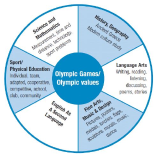
[Purpose] This study aims to examine necessity and characteristics of the K-OVEP, and discuss ways of settle and spread the program stably through cases applied in school settings. [Methods] To do so, educational components and curriculum of the K-OVEP was represented by analyzing references, developmental materials, and program application. This study was examined through the application process and observation of long-term program of the K-OVEP from two types of educational fields, 2 elementary schools and 2 middle schools. In order to examine if the K-OVEP achieves the aim of the IOC and the K-OVEP, basic level study was conducted to 187 students who participated in the program in 2016. The questionnaire consisted of three categories; ‘cognition part’ through the Olympic games and the Olympic values, ‘value part’ regarding five educational themes of the OVEP, and ‘interest part’ asking interest and involvement in sports activities, participants answered the questionnaire before and after the education. [Results] We found that K-OVEP is an integrated value based educational program regarding Olympics, stresses personality education, encourages students to explore their career, and is a process oriented education. The results showed that the K-OVEP achieved the educational goals in every categories and questions, and educational effects in sports activity looked different among schools and the environments. [Conclusion] This study was performed to participants at first year of the introduction of the K-OVEP, so in order to keep track of learners’ significant change continuously, expansion of participants, steady development of various new programs, development of assessment tools, experts training and follow-up studies will be required.

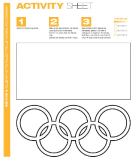
PURPOSE Professional Identity Formation (PIF) has become a core concept in various professional education fields as it emphasizes professionals’ dispositions as well as abilities. This study provides an overview of PIF and explores the characteristics of professional education programs that highlight PIF. Through this overview, the purpose of this study is to propose the ‘Professional Identity Matrix for Physical Education Teacher (PIMPET)’, which helps identify PE teachers’ Professional Identity (PI). METHODS This study suggests a guideline to understand PE teachers' PI based on the analysis of the current literature on PI and PIF. RESULTS The characteristics of PIF-based professional education programs were described according to three criteria: teaching content, method, and assessment. On the PIMPET framework, the components of PI formed by PE teachers can be categorized into nine domains which encompass the three identity dimensions (competence, knowledge, and disposition) and the three task areas (teaching, student, and administration). CONCLUSIONS The PIMPET framework allows for a comprehensive understanding of PE teachers’ PI and provides implications for the professionalism of PE teachers and PE teacher education.
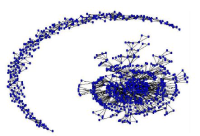
The purpose of this study was to identify the structure of knowledge in Sport Pedagogy field. Using bibliometric and social network analysis this study analyzed the keywords and citations appeared in Korean Journal of Sport Pedagogy and Korean Journal of Sport Science during 2006-2015 period. Total of 341 research papers which include 1301 keywords and 14826 citation were analyzed utilizing social network analysis as well as keywords frequency analysis, keyword co-occurrence, citation and co-ictation analysis. Results of this study showed that teaching, curriculum, and teacher education were three central theme in Sport pedagogy field. Key words such as physical activity, PE teacher, action research, and after school sport club activity were prominent research interests for scholard in the field. Quadradic Assignment Procedure analysis showed major research interests has not been changed between two periods of 2006-2010 and 2011-2015. Choi(2010)'s and You(2007)' books were most cited individual work and have influenced sport pedagogy researchers over the five years.

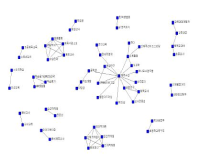

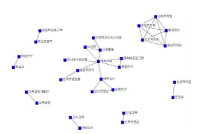
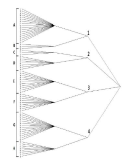
PURPOSE This study analyzed the KSPO women’s sports leadership program and foreign cases to suggest policy proposals. METHODS A literature review was conducted involving official webpage of the programs, related technical reports, media resources, and academic articles collected from international and domestic research databases. RESULTS The major results are as follows: (1) The curriculum of current program should be examined and reconstructed to achieve the intended purpose. (2) Since selfawareness is a key factor in demonstrating effective leadership, implementing selfawareness training program should be considered. (3) Mentoring is regarded to be an effective tool in promoting women leadership; therefore, establishing sustainable women mentoring program is required. CONCLUSIONS Despite several limitations, this paper is the first study, to the best of our knowledge, to review and analyze the KSPO women’s sports leadership program comparing foreign cases for the purpose of seeking improvement. As women’s leadership in the field of sport would become even more important in the future, this program should be redesigned to be able to train and nurture leaders so that they can progress to the higher level of decision making in sport organizations.
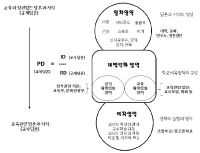
Drawing on Bernstein theory (1990, 1996) of pedagogic discourse, this study is aimed at exploring the construction of pedagogical meaning in physical education policy in Korea and providing critical implications for the development of policies for physical education and school sport. Both open-ended questionnaires (n=22) and in-depth interviews (n=9) were conducted. The collected data was commissioned by an inductive data analysis to look at patterns of regulative discourses embedded with physical education policy influencing on teachers’ educational practice. This study identified three main discourses constructing and constituting policies; sport, moral, and health. Sport discourse was the most dominant through the policy, in which two sub-discourses were central: ‘competition’ and ‘exclusion.’ Moral discourse had a strong connection with ‘crime reduction’ and ‘academic achievement.’ The structure of health discourse alleged increase in youth physical inactivity associated with sedentary living leads to an obesity epidemic. This study argued that there were significant dangers which dominant regulative discourses created a limited universe of possibilities for physical education. Therefore, we must not lose sight of the powerful discourses produced in the primary field, which have an impact on shaping forms of policy and practice in physical education. Furthermore, we need to examine in detail forms of physical education practice in order to achieve alignment in the school practice with current dominant discourses.

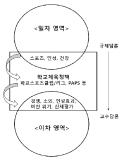
PURPOSE This study analyzed research on physical activities for elementary school students 1st and 2nd-graders to explore teachers’ perceptions and instructional practices in physical activity classes. METHODS Twelve studies published in academic journals conducted between 2000 to 2022 were selected for analysis. RESULTS The research articles were categorized into three domains: perception of physical activity in lower grades, operational features, and factors influencing practices from a didactic perspective. Challenges identified include dilemmas between curriculum documents and actual practice, a lack of practical teaching expertise, and a teaching culture discouraging physical activity in lower grades. Operational patterns were restructured into “avoidance-style classes,” “ad-hoc classes,” “textbook-dependent classes,” and “textbook-reorganization classes.” Factors influencing physical education for early elementary students included “teacher support factors,” “environmental factors,” and “administrative factors.” CONCLUSIONS In conclusion, this study advocates for policies that systematically improve perception, administration, and support classes for activating physical activities in lower elementary school students. The findings suggest the need for strategies such as adapting integrated curricula, creating training programs and educational materials, ongoing professional development activities for teachers, and specific research focused on physical activities for lower grade elementary students.
PURPOSE This study aimed to develop a sports-related human rights education program for college student-athletes. METHODS To do this, literature reviews, individual interviews, and experts’ meeting data were collected. The data were analyzed using content analysis and domain analysis. RESULTS The study involved five steps. First, the literature reviews examined the problems and improvement points regarding previous sports-related human rights education programs. Second, the direction of human rights in sports education programs was developed based on certain development principles and criterion. Third, eight sports-related human rights education lesson plans were developed. Each lesson plan had a format that contained lesson objectives, ice breaking quizzes, core contents, discussion sections, and essential summaries. Fourth, the program was validated using a pilot test. Last, a “human rights in sports” instructor education program was executed. CONCLUSIONS The program can be effectively used among college student-athletes.

Purpose The present study explores educational values of professional coaches from perspectives as educators while they are giving the players sports coaching. Since free agent system was introduced in 1999 at Korean Baseball Organization(KBO) league, the socio-economical differences between players and coaches are getting bigger and bigger. In this situation, professional coaches tend to have more difficulties in interacting with the players. The study focuses on looking into professional coaches' educational agony and reward. Also, it highlights their educational values as educators rather than coaches. Methods Two professional baseball coaches and a TV commentator participated in the study: all past professional players, and professional coaches for more than 10 years. The researchers collected data through semi-structured in-depth interviews; each participant was interviewed three times. The researchers recorded and transcribed all of the interviews; then, the researchers reread the interview transcripts and inductively produced codes for themes whenever emergent codes appeared. Verbatim quotations from the interviews are excerpted in the present research report. Results The findings indicate that, first, the participants are all highly motivated in giving lessons to the players. They all helped the players overcome the difficulties and be good players. They emphasized the importances of endeavors and attitudes during their lessons to be well-received by the players. Second, the participants agreed that good coaches should have the ability to find the potentials of the players and have personality to gain the players' trust. They always have to work and study hard to keep expertises. Conclusions This study argues that the participants are playing their roles in a sport coaching area not only as coaches, but also as educators.

Purpose Philosophical inquiries into physical education and sport pedagogy(PESP) have not been active until lately. A renewed interested has grown as scholars in UK and European countries have begun philosophical analysis since 2000. This study purports to review the philosophical studies in PESP during the last 50 years, and to forecast the future of SP in Korea based on its strength and weakness. Methods Literature review is adopted as the main method, as the philosophical study requires the conceptual analysis on the ideas. The past research, current main studies and future prospects are analyzed according to the three layers of the professional, the theoretical, and the personal dimensions. Results First, in the professional dimension, the philosophical inquiry by the SP philosophers and the educational inquiry by the sport philosophers are identified. Second, in the theoretical dimension, the exploration on the nature of research in PESP, the suggestions of PE models, the examination of teaching-learning in PE, the promotion of teacher/coach education and professional development, and the analysis of PE curriculum issues and policies are actively produced. Third, in the personal dimension, the practitioner research by PE teacher/professor/coach and the self-study of sport coaches have are begun to be conducted. Conclusions For the prospect of PESP in Korea, it can be said that study in the first dimension would not be bright, where as those of the second and the third would be very good for the near future.
There has been a growing advocacy for a critical approach to physical education teacher education(PETE) in the era of globalization and ubiquitous society. Drawing on critical pedagogy, the purpose of this paper was to explore the meanings and methods for developing critical professionalism in PETE through identifying the definitions and features of critical professionalism. The notion of critical professionalism includes four crucial components: critical reflection, social sensitivity, critical thinking, and practicability. This paper suggests an inquiry-oriented physical education teacher education to develop per-service teachers’ critical professionalism in terms of providing a range of teaching methods centered on microteaching, discussion-based lessons, critical reading and writing, and using media materials. Building on findings, it was concluded that there is a need of programs for the development of policy literacy understanding complex social and cultural contexts of school physical education. Furthermore, PETE should focus on the processes of critical reflection on the teaching and learning act itself within wider social contexts, by using an inquiry-oriented approach to PETE, which will contribute to fostering teachers’ critical capacities needed to guard the educational aims of physical education against political interference.